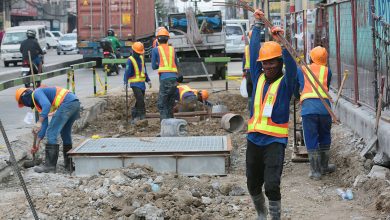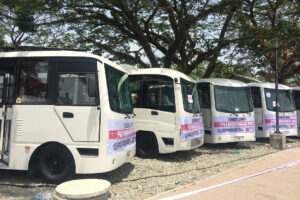FDI net inflows slip in August

By Keisha B. Ta-asan, Reporter
The country’s net inflows of foreign direct investments (FDI) slid in August as elevated inflation and high-interest rates continued to dampen investor sentiment.
Data released by the Bangko Sentral ng Pilipinas (BSP) on Friday showed FDI net inflows inched down by 1% to $789 million from $797 million a year earlier. However, it rose 4.8% from the $753 million in July.
Despite the year-on-year decline, August saw the biggest monthly FDI inflow in four months or since the $877 million in April.
“The continued FDI net inflows reflect the country’s strong macroeconomic fundamentals. Nonetheless, the recorded slowdown may be due largely to investor concerns following the sustained uncertainty surrounding the global economy,” the BSP said.
The BSP mainly attributed the overall decline of FDIs to the contraction in non-residents’ net investments in debt instruments.
Non-residents’ investment in debt instruments, consisting mainly of inter-company borrowings between foreign direct investors and their units in the country, fell 7.8% year on year to $537 million in August from $582 previously.
However, this was offset by the growth of foreigners’ investments in equity capital (other than reinvestment of earnings), which rose 13.3% to $36 million from $31 million in August 2022.
Equity capital placements surged 171.6% to $216 million, while withdrawals skyrocketed by 275% to $181 million in August.
The equity placements were mainly from Japan, the United States, and Singapore. Investments were placed mostly in manufacturing, wholesale and retail trade, and information and communication industries.
Reinvestment of earnings also climbed 21.4% to $217 million year on year in August. Equity and investment fund shares expanded 20.2% to $253 million.
For the first eight months, total FDI net inflows dropped 12.9% to $5.45 billion from $6.26 billion a year earlier.
Foreign investments in debt instruments went down 14.2% year on year to $3.82 billion. Investments in equity and investment fund shares also declined 9.7% to $1.63 billion.
Net foreign investments in equity capital shrank 13.1% to $844 million. This, as equity capital placements rose 8.4% to $1.22 billion, but withdrawals surged 142% to $376 million.
Most of these placements were from Japan, the United States, Singapore, and Germany during the January to August period.
Reinvestment of earnings slipped 5.8% to $790 million in the first eight months.
Rizal Commercial Banking Corp. Chief Economist Michael L. Ricafort said FDIs might have been dragged by elevated inflation and high-interest rates globally, which made investments more expensive.
Headline inflation accelerated to 5.3% in August from 4.7% in July, the first time in seven months. It marked the 17th consecutive month that inflation surpassed the BSP’s 2-4% target range.
Meanwhile, the BSP kept the benchmark interest rate steady at a 16-year high of 6.25% during its August policy meeting.
The BSP raised borrowing costs by 425 basis points (bps) from May 2022 to March 2023 to tame inflation.
Easing inflation in the coming months could prompt the central bank to start cutting borrowing costs in 2024, Mr. Ricafort said. This could help reduce financing costs, leading to a likely increase in FDIs later on.
Measures to further reopen the economy may also continue to boost investments, especially as the Philippines is still seen to be among the fastest-growing economies in the region, he said.
“Other reform measures to ease foreign ownership limits as already signed into law, such as the amendments to the Public Services Act, Foreign Investments Act, Retail Trade Liberalization Act, 100% foreign ownership of renewable power projects, among others, would all further encourage and attract more FDIs into the country,” he added.
The central bank projects FDI net inflows to reach $8 billion this year and $10.5 billion in 2024.




